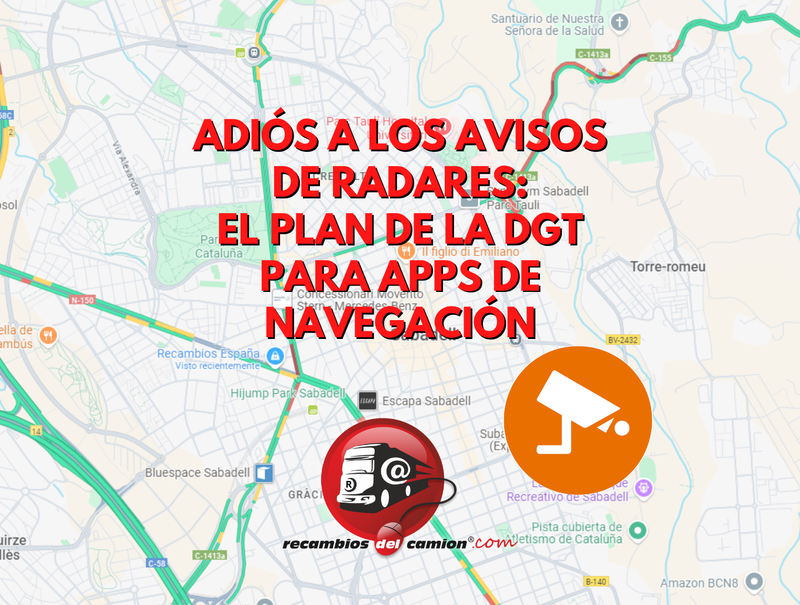Goodbye to radar warnings: the DGT's plan for navigation apps
For years, apps like Google Maps, Waze, and Radarbot have revolutionized drivers by providing real-time information on traffic conditions, road closures, and, above all, the location of speed cameras. However, this last point has long been a source of tension with authorities, especially the Spanish Directorate General of Traffic (DGT).

The DGT (General Directorate of Traffic) has been trying for over five years to restrict navigation apps from displaying the location of certain roadside checkpoints, particularly those designed to detect serious violations such as alcohol and drug use while driving. The goal is clear: to prevent drivers from being able to avoid these checkpoints simply by consulting an app, which could endanger road safety.
So far, it hasn't been possible to implement a real restriction, but now the Directorate General of Traffic is considering imitating the French model, which has been in place since 2021.
In France, since May 2021, navigation apps have been prohibited from indicating the exact location of police checkpoints if they are part of an operation aimed at arresting specific individuals, such as checkpoints for terrorism, drug trafficking, or driving under the influence of alcohol or drugs.
However, France does not ban all warnings. Instead, it allows generic information about a "danger" over a stretch of several kilometers (up to 10 km on motorways), but without showing the exact location of the radar or checkpoint. This system has been agreed between the French government and the main app developers, who are required to disable precise warnings in these areas for a certain period of time.
This would not involve completely eliminating radar and checkpoint warnings—something that is difficult to justify to drivers and technology companies themselves—but rather limiting the accuracy of the information provided when safety is at stake or sensitive operations are involved.
The difficulty in Spain lies in how to legally implement this measure. Currently, no law prevents an app from sharing public or user-provided information, and the privacy of this data is a key element. However, the Traffic Department believes that in specific and justified situations, access to this data could be limited without violating rights.
For drivers, navigation apps with speed camera warnings are a useful tool. They not only help them avoid fines, but also provide speed limit reminders, adapt to traffic conditions, or avoid problematic areas.
But authorities face a dilemma. Warning about a fixed speed camera can improve safety if it encourages drivers to reduce their speed, but warning about a real-time drug or alcohol checkpoint can, on the other hand, allow people in dangerous driving conditions to avoid a fine.
This is where the need to find a balance between the usefulness of these apps and the need to ensure road safety comes into play.
For now, no firm decision has been made, but everything indicates that the DGT could move in the coming months to promote a system similar to the French one. The goal is not to persecute the apps or their users, but to ensure that essential traffic operations are not hindered.
Meanwhile, apps like Google Maps and Waze continue to offer alerts provided by their user communities, and are aware that a possible change in legislation may force them to modify the operation of their platforms in certain circumstances.





Opinions of our clients
Receive our news